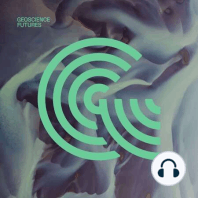35 min listen
Chris Jackson
ratings:
Length:
40 minutes
Released:
Feb 13, 2022
Format:
Podcast episode
Description
Geoscience unquestionably has a diversity problem. As one person we spoke to said: “We are the whitest of the white”. Now, if you happen to be white then you'll probably acknowledge that this is an issue of concern. But if you’re a Black geoscientist, it's likely that the simple fact of your skin colour is going to be an inescapable and daily preoccupation in your professional life. Few people have spoken about this issue more eloquently, or with more passion than Professor Chris Jackson, of Manchester University. As a discipline, this is a conversation that we urgently need to have: no discussion about the future of geoscience can afford to ignore the need to diversify its appeal. Chris doesn’t pull his punches, but his thoughts are always constructive and full of humour. He starts off this conversation - also involving my colleague Cam McCuaig - by highlighting the challenges facing geoscience today.
Released:
Feb 13, 2022
Format:
Podcast episode
Titles in the series (8)
Sarah Gordon by Geoscience Futures
